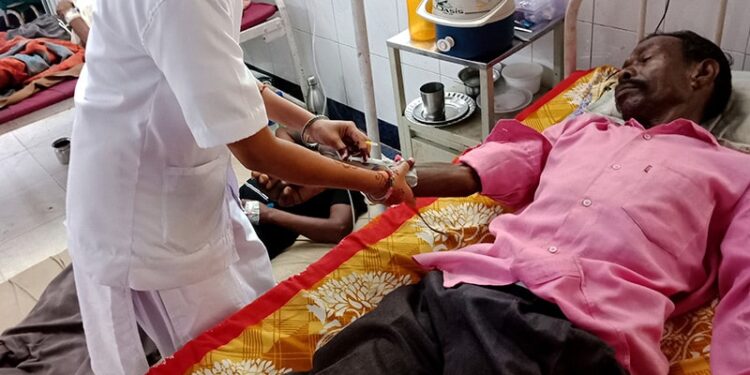TOPLINE:
Having a higher Acute Physiology and Chronic Health Evaluation (APACHE-II) score, blood loss exceeding 100 mL, and a surgeon with fewer than 10 years of experience were linked to poor postoperative outcomes in a cohort study of 421 patients who had surgery for cancer.
METHODOLOGY:
- Global data indicate a mortality rate of 0.5%-5.0% and a complication rate of 16% after surgery. The study aimed to optimize critical care resource allocation by identifying patients most likely to benefit from postoperative monitoring.
- A cohort study analyzed data from 421 patients with cancer aged at least 18 years admitted to critical care at Cachar Cancer Hospital and Research Centre in Silchar, India, between May 2022 and April 2023.
- Analysis included preoperative, intraoperative, and postoperative parameters extracted from the cloud physician electronic database, with poor postoperative outcomes defined as morbidity or mortality.
- Researchers utilized descriptive analysis and log-binomial regression to analyze the data using STATA version 12.1.
TAKEAWAY:
- Among study participants, 68% experienced significant postoperative morbidity, while 3% died during the postoperative period.
- Patients with APACHE-II scores greater than 15 showed (adjusted relative risk [RR], 4.5; 95% CI, 1.48-14.01) poor postoperative outcomes.
- Having been operated on by a surgeon with fewer than 10 years of experience was associated with (RR, 1.7; 95% CI, 1.06-2.94) poor postoperative outcomes.
- Blood loss exceeding 100 mL (RR, 2.42; 95% CI, 1.43-4.10) was a significant predictor of poor postoperative outcomes.
IN PRACTICE:
“Identifying prognostic factors that are predictive of postoperative mortality and morbidity for patients in surgical units may help identify high-risk patients and tailor admission to critical care in a resource-constrained setting,” the authors of the study wrote.
SOURCE:
The study was led by Bhavana Kulkarni, MBBS, DNB, Cachar Cancer Hospital and Research Centre in Silchar, India. It was published online on July 30 in JCO Global Oncology.
LIMITATIONS:
The study was limited by missing data on weight loss during neoadjuvant therapy and lack of records on smoking cessation duration before surgery. Additionally, as the study was based on real-world data from a resource-constrained setting, the findings may not be generalizable to other contexts.
DISCLOSURES:
The study was supported by the Collaborative Medical Oncology Group, Chennai, India, and Cachar Cancer Hospital and Research Centre, Silchar, for training program costs associated with the Structured Operational Research and Training Initiative.
This article was created using several editorial tools, including AI, as part of the process. Human editors reviewed this content before publication.
Source link : https://www.medscape.com/viewarticle/poor-postcancer-surgery-outcomes-tied-3-factors-2025a1000l1z?src=rss
Author :
Publish date : 2025-08-08 05:25:00
Copyright for syndicated content belongs to the linked Source.














